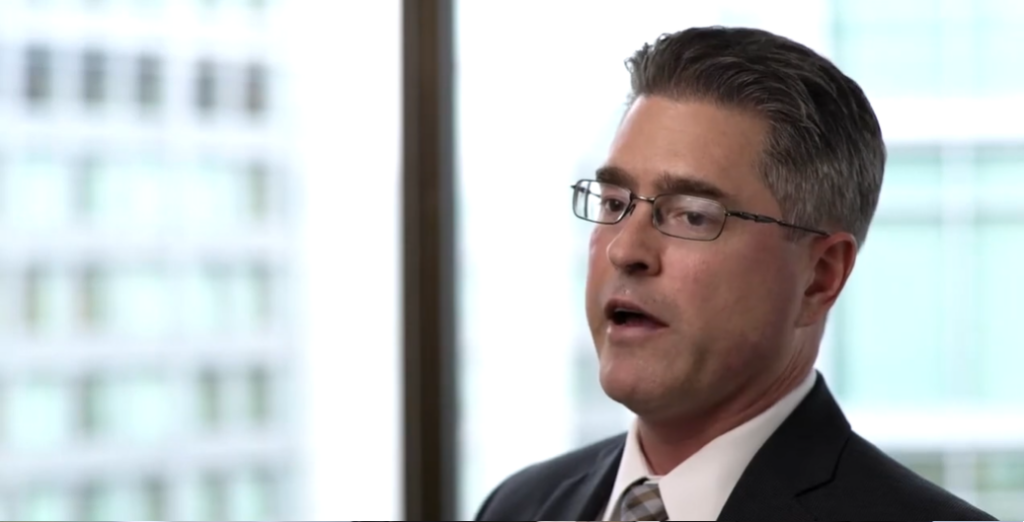A well placed phone call from an adverse insurance company to a law firm managing partner is often the best way for an insurance company to dispose of an otherwise valid insurance claim. Here is the scenario. A prestigious large law firm is representing a policyholder in defense of a lawsuit. As is the case with many large high-end corporate law firms, that law firm is also approved panel counsel for various insurance carriers. An insurance coverage issue arises, and the policyholder asks if someone at the prestigious large firm can look at the insurance issue. The law firm’s response is, certainly. The law firm gives some advice, the claim is large, and things become adversarial with the insurance carrier. That is when the insurance company places a phone call to the law firm managing partner saying that their relationship is no longer working.
The call often goes like this:
John (at Insurance Company): Hey Bill, this is John at XYZ insurance company. I just wanted to call you personally to explain a big problem we are having with your firm. I think the end result is that our relationship together cannot continue.
Bill (Law Firm Managing Partner): What’s wrong John. We have been working with you for years. I can’t fix the problem if I do not know what it is. Can you tell me what is going on?
John: Yes. I guess so. This is quite uncomfortable for me, because we have been working with you for so long. Last year, I think we paid your firm $10 million, the year before that $14 million, and the year before that $9 million. The problem I have is that we just done feel like you are with us anymore.
Bill: Of course we are, there must be some misunderstanding.
John: I’m not sure, I just found out that your firm is pushing a claim against us. We think the claim is total nonsense. But your firm is pursuing it, and that is making folks here quite uncomfortable.
Bill: I see. We are a big firm. Things like this can happen. Please don’t hold that against us. The important thing is that we fix this problem. Let me look into it and get back to you. I am sure that we can remedy any problem that you may have. Just give me a few days to set things straight internally.
John: Thanks Bill. I was really worried about making this call. We have been working together for so long, and I did not want to let this one little thing destroy our relationship. I feel better now.
Bill: Great. I will call you in a few days to let you know that we have this situation under control.
The question for the law firm is whether they want to lose a reliable revenue stream of approximately $10 million per year just to push an insurance claim. The answer is likely not.
Because law firms do not want to be put in this kind of situation, most have procedures in place so that lawyers at their firms do not pursue insurance claims. But, there are still many law firms who sit on panel counsel and advise policyholders on coverage issues. The old adage, “there is no conflict so long as the client is paying the bills” may be more valid than anyone would like to admit.
The question policyholders should ask is whether or not they want to hire a lawyer to advocate for them when that lawyer has his or her hands tied behind his or her back. Before forming Miller Friel as a boutique insurance recovery law firm, we were insurance-recovery partners at one of those prestigious large law firms. We know first-hand why, with respect to insurance recovery law, the boutique law firm model is ideally suited for delivery of both zealous advocacy and have seen first-hand that, in this area of law, zealous advocacy leads to better results.
For a transcript of the video please see below
What really hurts and what most managing partners and shareholders of the law firm, what they understand and know for a fact is, all it takes is one call from one person at the insurance company to the right person at the law firm to say, “ you know, we’ve been partners for years, we’ve been working with you, I think last year we paid you $10 million, the year before we paid you $14, year before I think we paid you $9. You know, I just, this is the insurance company talking, I just think we can’t do it anymore.
And then you’re the managing partner at the law firm, you’re thinking you’re going to lose $10 million. Why? And your like no no no, what’s wrong?
Oh well you know, I just don’t think the relationship is working. Well you have to tell me why? And the managing partner says, the lawyer from insurance company or the guy managing the stuff the insurance company says, “well, you know, you sued us. We don’t like that lawsuit and we don’t like what’s happening, and we might even lose it.” And the managing partner smiles a little bit because our lawyers are good, you might lose it.
The bottom line is at the end of the day, what’s the law firm to do? Are they going to keep the money? The $10 million, $12 million, $14 million, $9 million a year from the insurance company? Or are they going to side with one client on a bad faith issue that they are not even sure is legitimate to file anyways.
My point is it’s a lot of strife, and it creates a lot of confusion. There’s a simple answer. The panel counsels don’t do coverage work. They don’t advise clients on insurance. That’s the approach that most large astute law firms have taken. And if they’re taking that approach that’s a good thing because it makes it better for them. They don’t have to worry about things. And if they’ve taken the other approach, which might be, we’re going to do everything for everybody, it’s a recipe for difficulties. Do you really want to hire a lawyer that has his hands or her hands tied behind his or her back? And that’s what it comes down to.
Sometimes it doesn’t matter. Sometimes it does. I think it matters all the time. I think it’s something that we take very seriously, and that is your obligation to zealously advocate. Zealous is a pretty strong word, that means push hard and do everything you can for your client. If your hands are tied behind your back by an insurance company, we don’t think you can advocate zealously.



